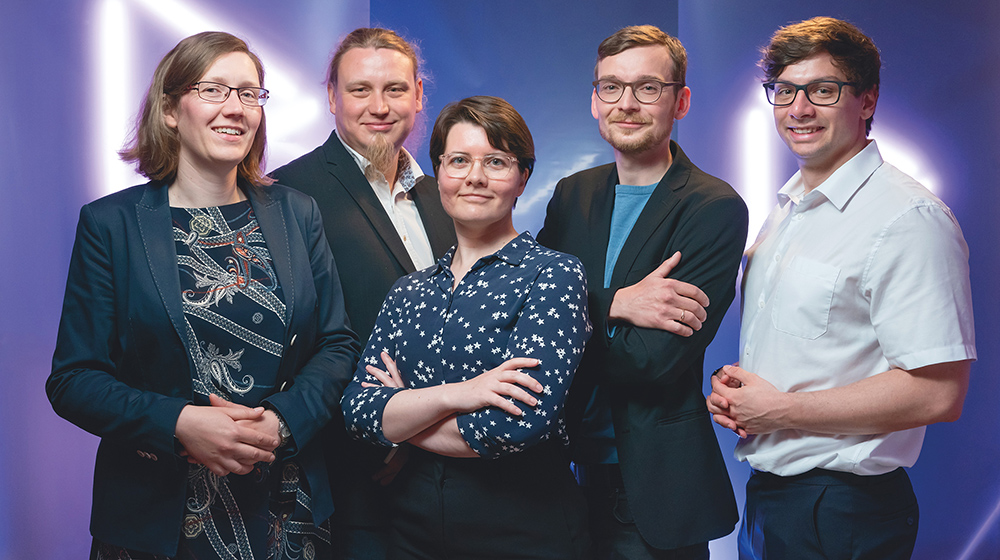
High-tech research is costly and risky and therefore often impossible for small and medium-sized companies to shoulder. In order to turn promising research results from universities into usable products for industry, there are funding programmes from the federal and state governments.
One of these federal funding programmes is the so-called EXIST research transfer. The funding programme turns scientists into founders and researchers into entrepreneurs. Since September 2023, one such funding programme has been available at the University of Magdeburg: The EXIST AuRora project team has set out to transfer high technology from the university to industry through a spin-off. Their topic: the automated programming of industrial robots.
Industrial robots are no longer an exception in modern industry: they increase efficiency, improve product quality and reduce the workload on labour. However, small and medium-sized companies are often unable to afford industrial robots. This is precisely where the EXIST research transfer programme at the University of Magdeburg comes in. Erik May, a research engineer from the University's Institute of Human Factors, Factory Automation and Factory Operation who is interested in founding a company, explains: "When purchasing and using industrial robots, there are high connection costs for their programming. Every time the production process changes, the programming of the robot system also has to be adapted. For example, if you have a robot set up to grind the edges of a steel gearwheel, you cannot grind any other steel parts without reprogramming the robot. The costs for this can amount to 75 per cent of the total costs after a period of 10 years.
His team is working on a software technology that automatically generates these robot programmes. "This saves time, as the software can generate the robot programmes faster than a human programmer," says the engineer. "On the other hand, it is likely that we will generate more efficient workflows, as the algorithm searches for and finds many millions of possible ways to reprogramme a work task for the robot."
The current state of development of his EXIST AuRora project has made it possible to recruit the first pilot companies that want to test the technology in the production process. "There is a lot of interest in our software technology," says May. However, the path from the idea to the spin-off of a company is long and full of hurdles. He is therefore all the more pleased that the EXIST research transfer funding has worked out and is supporting his team. "Preparing the application was time-consuming, as the required documents are similar to a business plan. This ranged from a market analysis to a technical forecast and an evaluation of the technology. At the same time, we were also applying for an important innovation award." And the AuRora team was successful here too, winning first place with its software solution at the IQ Innovation Award 2023 in the Automotive cluster.
Erik May advises anyone who has ideas for spin-offs: "Just do it. You should let go of the idea that you can't do it, because otherwise you might not take the first step towards turning it into something more". However, he believes that the first port of call for students, graduates or researchers at the University of Magdeburg who are interested in setting up a business is the TUGZ transfer and start-up centre, which provides advice if an idea is to become something more.
